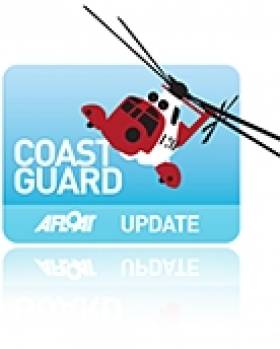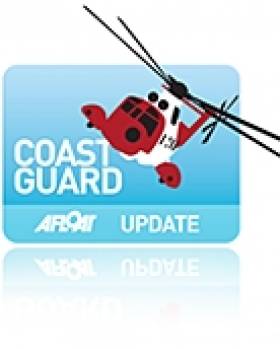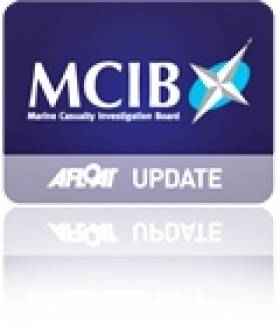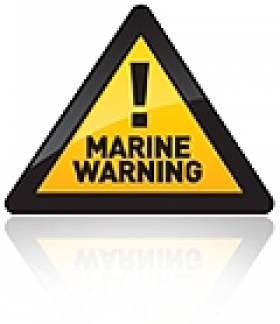Displaying items by tag: Malin Head
Valentia and Malin Head Stations Now Both Under Threat
#COASTGUARD - Coastal communities in Kerry have joined those in Donegal protest against plans to close the Malin and Valentia coastguard stations.
In last Friday's This Island Nation, Tom MacSweeney discussed the attempts by management at the Irish Coast Guard to centralise radio operations in Dublin, commenting on the "vital component" of the stations' staff's local knowledge.
As previously reported on Afloat.ie, Minister for Transport Leo Varadkar said he would begin an action plan due in October to deal with issues outlined in a recent 'value for money' report which may require "tough decisions", including the closure of a coastguard radio station at Malin or Valentia.
Donegal TD Charlie McConalogue had already asked the Government for assurances on the future of Malin Head, which he said "has provided and invaluable service for over a century".
But the Sunday Independent has learned that now both stations are earmarked for closure, and reports that the Valentia Save Our Station group is concerned the minister is looking at an "alternative technical solution" by installing coastguard equipment from the west coast in his own constituency in Blanchardstown.
All this is despite the scheduled installation of hundreds and thousands of euro worth of new equipment in the Valentia station, which currently handles two-thirds of all major search and rescue operations annually, according to the Irish Examiner.
The change in plans has come as a surprise, the Examiner says, after similar proposals under the previous government were halted following pressure from backbench TDs.
#COASTGUARD - A Donegal TD has asked the Government for assurances on the future of the coastguard station at Malin Head, as the Donegal Democrat reports.
Fianna Fáil's Charlie McConalogue, the Deputy for Donegal North-East, said the recent 'value for money' review of the Irish Coast Guard network "raises fresh concerns for the future of what is an excellent and life-saving service in Donegal and across the North West region."
He added that Malin Head "has provided and invaluable service for over a century" with a core of "highly trained and experienced staff" who are benefitting from an "extensive upgrade" of eqiupment at the station.
"The notion that all of this work could go to waste and service could be removed entirely is a disgrace," said Deputy McConalogue, who also argued that Malin's potential closure would represent a disproportionate level of cuts to local services in the North West.
As previously reported on Afloat.ie, Minister for Transport Leo Varadkar is set to make "tough decisions" for an action plan due in October to deal with efficiencies in the coastguard network as highlighted in the Fisher Report, which may involve the closure of a coastguard radio station at either Malin or Valentia.
#MARITIME TV PROGRAMMES - A sunken U-boat off Malin Head will be one of the sites visited by Dan Snow in a new series looking at Northern Ireland's role in the Second World War.
Dig WW2 With Dan Snow, a three-part series for the BBC, will see the historian travel to key sites across Europe where Northern Ireland's influence played a key roe in the outcome of the war - including some of the 350 wartime sites in the North alone.
In the first episode, the documentary series will follow Snow and his team as they dive to the bottom of the Atlantic "to reveal the surreal image of Sherman tanks littering the seabed" and to the wreck of a U-boat "that was one of the most successful in the German fleet".
Snow said: “As a military historian World War II is a story I thought I knew but now I’ve come to Northern Ireland where I’m discovering all sorts of incredible stories - secrets, heroism, suffering and valour.
"This is the untold story of how Northern Ireland played a pivotal role in the war and how its people helped shape the outcome.”
Dig WW2 With Dan Snow begins Monday 14 May at 9pm on BBC One Northern Ireland.
Storm Force Wind Warning In Effect for Irish Coast
#WEATHER - The Irish Coast Guard has warned people to stay away from cliff paths and other coastal areas as near hurricane force winds continue to batter the country, the Irish Examiner reports.
As of this morning, Met Éireann was expecting gusts of up to 140 kilometres an hour in Connacht and Ulster.
All Irish coastal areas are expected to experience strong gales. Winds will occasionally reaching violent storm force 11 on coasts from Rossan Point to Malin Head to Fair Head this afternoon, according to meteorologists.
Rescuers Searching for Student Find Body Off Achill Island
#NEWS UPDATE - The Irish Times reports that rescue teams searching for a Finnish student who fell off a cliff on Achill Island have found a body.
The 22-year-old student was thought to be visiting the area yesterday when he slipped and fell down the sheer cliff face at Cloughmore.
The Irish Coast Guard and Achill's RNLI lifeboat were swiftly at the scene after the alarm was raised by a friend of the student.
A spokesperson for Malin Head Coast Guard commented: “A body has been located but we haven’t been able to recover it yet because the weather has been so rough."
The location of the body is in an area with a significant swell and close to jagged rocks. It is hoped that conditions would improve today to allow the rescue heliopter to recover it.
Families Disagree with MCIB Report on F/V Jennifer
The Irish Examiner reports that the families of two fisherman who drowned off Malin Head last November disagree with the findings of the official investigation into the tragedy.
Eddie Doherty, 65, and his nephew Robert McLaughlin, 41, died after their small fishing boat F/V Jennifer capsized and sank off Glengad on 1 November last year.
The official report released last week by the Marine Casualty Investigation Board (MCIB) found that a combination of high winds in the area and unstable weight on the boat due to the crab pots it was carrying most likely caused the vessel to list to an angle from which it could not be recovered.
But Eddie Doherty's widow said she disagreed with this conclusion.
"With Eddie’s experience and his regard for safety the load would have been spread evenly over the deck of the boat and therefore this would not have had an adverse affect on the stability of the boat," said Marian Doherty.
The full MCIB report is available to read in full HERE.
Gale force westerly winds Gusting to 140km/h
Met Eireann have issued a severe weather warning.
Southerly gales or strong gales developing this evening and for a time tonight on all coasts and on the Irish Sea. Winds veering westerly tonight and continuing to reach gale force on coasts from Roches Point to Erris Head to Malin Head overnight.
Stormy conditions will affect Ireland Thursday afternoon, evening and for much of Thursday night. Gale force westerly winds will gust between 100 and 120 km/hr generally, but gusts of up to 140 km/hr are expected in exposed parts of Connacht and Ulster. These winds are likely to lead to some structural damage and will be accompanied by high seas on Atlantic coasts. Winds will moderate considerably towards dawn on Friday.
More HERE


































































